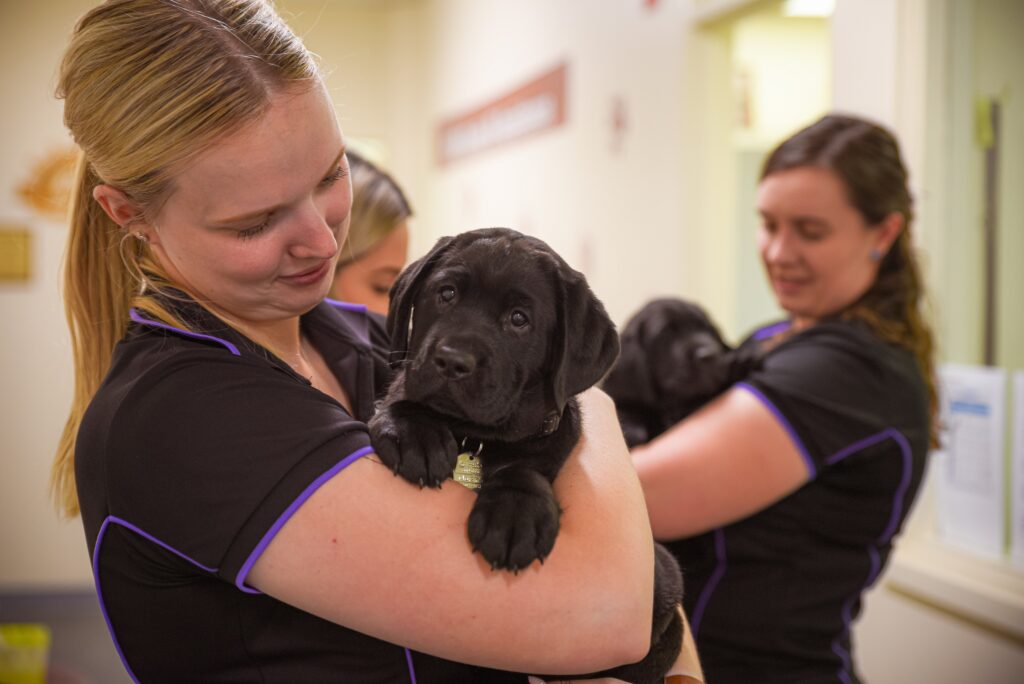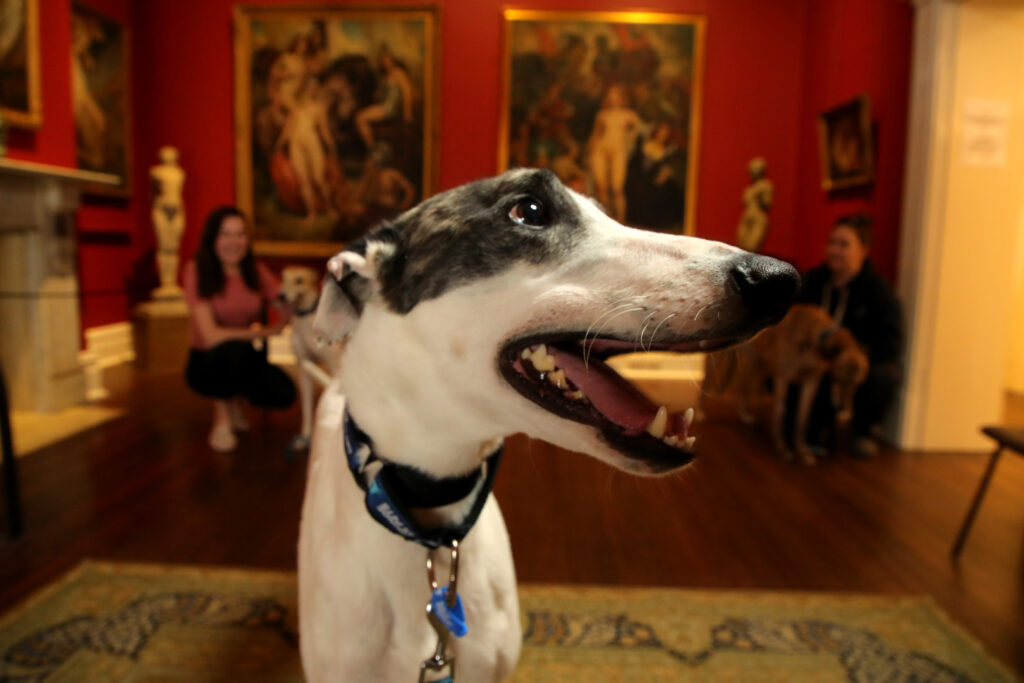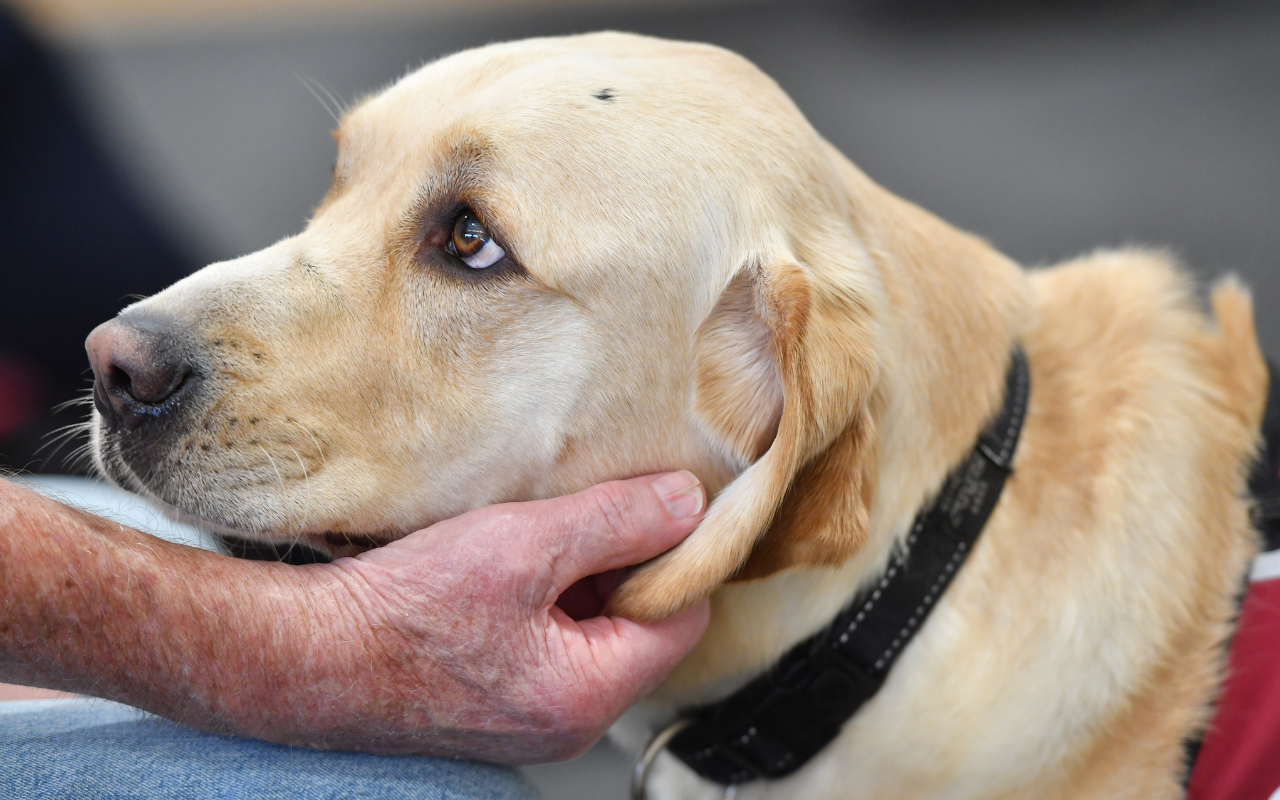A new study has found that assistance dogs, when used in conjunction with traditional therapies, provide the most effective treatment outcomes for returned Australian veterans experiencing mental health struggles.
Of the 5000 Australian Defence Force (ADF) members who transition from the forces to civilian life every year, 46% experience mental health issues, including suicidal thoughts, anxiety and depression, and 24.9% will have a diagnosis of post-traumatic stress disorder (PTSD) in their lifetime.
A new study published in the International Journal of Environmental Research and Public Health has found that pairing returned veterans with assistance dogs can have a significant positive effect on their mental health symptoms.
The study of 16 veterans, which included self-reported measures, clinical assessments and face-to-face interviews, found that 88% of participating veterans reported improvements, with 63% of participants showing “clinically significant change.”
The assistance dogs were provided by Operation K9, a program for veterans run by See Differently with the Royal Society for the Blind.

Veterans reported their dog helped them “reclaim their life,” giving them independence and a way to manage their mental health issues and fluctuating emotions, including hypervigilance.
Some participants described their dog as “a comfort or security blanket,” with one veteran saying they were a recluse for many years until being matched with an assistance dog: “Now, every day is an adventure, giving me something to look forward to”.
Master of Clinical Psychology student Melissa Sherman at the University of South Australia, who analysed the data, says the findings are relevant to policy makers and demonstrate the power of human–animal relationships.
“Many veterans who have undergone trauma-focused evidence-based treatments still meet the criteria for PTSD and continue to experience symptoms,” Ms Sherman said.
“As a result, there is a clear need to evaluate the use of adjunct interventions as a supplement to traditional therapies.
“This is the first longitudinal Australian study to measure mental health and wellbeing outcomes in veterans who have been matched with an assistance dog over 12 months.
“The study found a significant reduction in the proportion of veterans meeting clinician-diagnosed PTSD [criteria] as well as the severity of self-reported depression, anxiety and PTSD.
“This is significant as it provides evidence that having an assistance dog may be a feasible adjunct intervention to other evidence-based treatments.”
Researchers say the study was limited by the lack of a control group of veterans with PTSD and the small number of study participants due to the cost of breeding, training, and matching dogs to veterans.
A single Operation K9 dog will cost in excess of $30 000 to breed and train.
The Australian Federal Police (AFP) have found an innovative alternative to accessing assistance dogs by partnering with Greyhound Racing New South Wales and Greyhounds Australasia.
In a world-first initiative, retired racing greyhounds will be retrained as PTSD companion animals for members of the police union, the Australian Federal Police Association (AFPA).
The program arose out the success of another partnership with the Police Association of New South Wales to supply greyhounds as pets, after a former officer reported that their adopted greyhound had significantly helped them with their PTSD symptoms.

“While still in its infancy, that program has already delivered successful adoptions, but importantly it also delivered us the learning that PTSD dogs are in demand,” Robert Macaulay, Greyhound Racing NSW Chief Executive Officer, said.
“We realised we had to take this one step further, and we have now been able to enter into an agreement with one of the pre-eminent dog trainers in Australia, Steve Austin, to retrain our retired athletes for a new career as a PTSD companion animal.”
AFPA President Alex Caruana said his Association was “proud and happy” to partner with Greyhound Racing NSW and Greyhounds Australasia for the program.
“Police Association members are at a significantly increased risk of acquiring mental health injuries, and also of those injuries developing into PTSD,” said Mr Caruana.
“The typically busy operational work life of our members, coupled with socially isolating shifts and on-call rosters, means that they often find it exceedingly difficult to switch off and decompress after traumatic incidents.
“Meeting and bonding with a support animal gives them so much back over time in terms of independence, manageable routines, exercise and social independence.
“As an animal lover, I am personally thrilled that these wonderful dogs are able to help people in this way, and at the same time ‘retire’ into a loving environment where they will be showered with love, trust, and lots of treats.”
Whether a K9 or a greyhound, an assistance dog could make a real difference in the lives of police and veterans facing significant mental health challenges from their service.
Veterans looking to participate in an assistance dog program can apply through the Department of Veteran’s Affairs Psychiatric Assistance Dog Program.
Serving and former AFP officers or NSW police officers can find out more about the greyhound adoption program by contacting either the AFPA or the Police Association of NSW.
Subscribe to the free InSight+ weekly newsletter here. It is available to all readers, not just registered medical practitioners.

 more_vert
more_vert
My husband, a retired GP, has recently acquired a Therapy Dog, after an assault left him with mental health issues. The beautiful dog that he was matched with has turned our lives around. She has put purpose and routine into his life, and mine, and a renewed interest to get out and do things. We cannot thank Guide Dogs Victoria enough. Their pairing was impeccable.